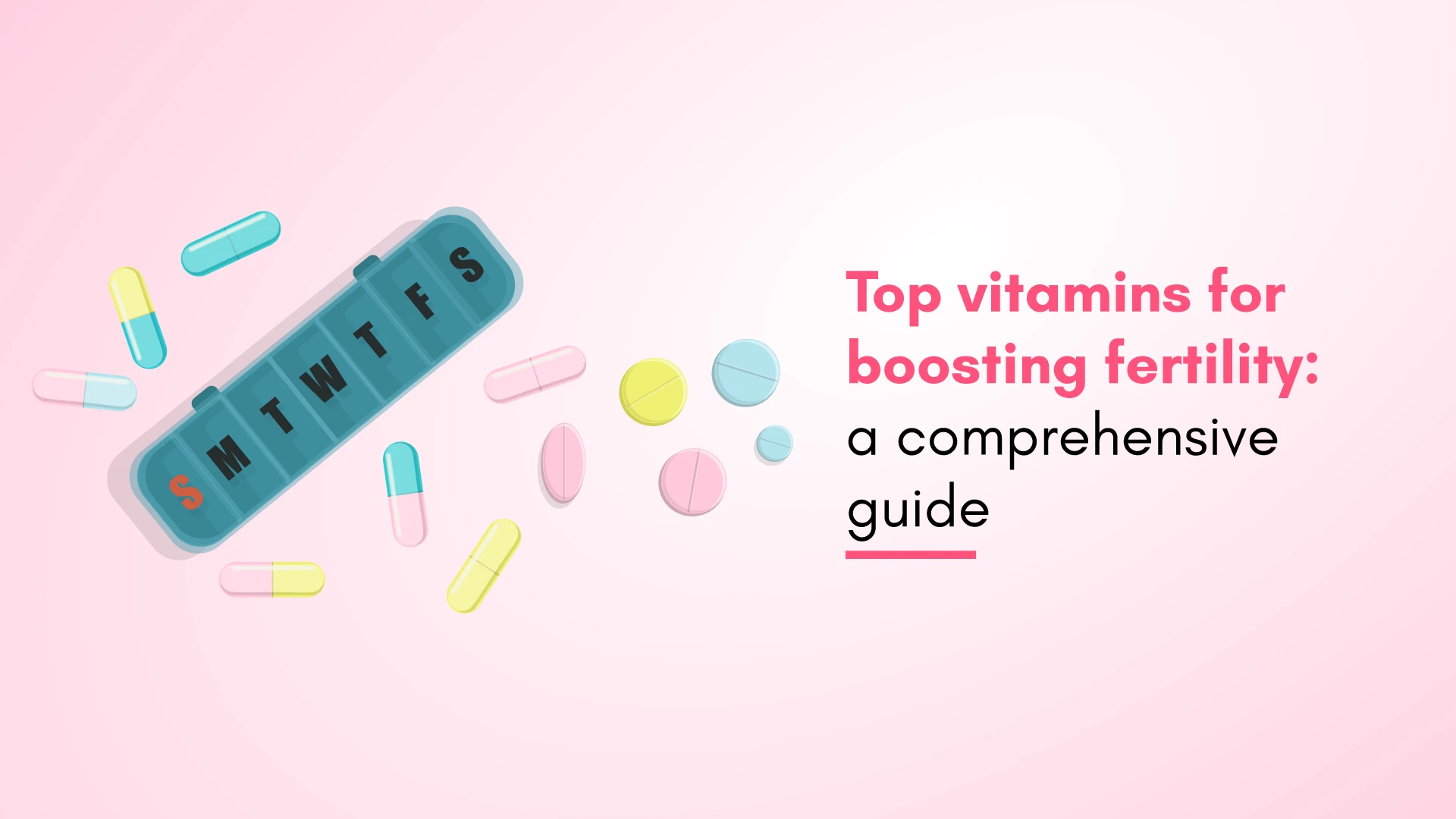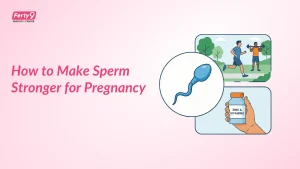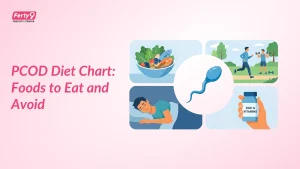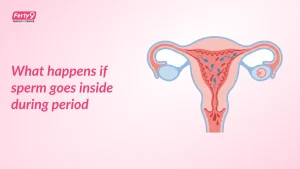Did you know that nearly one in six couples struggle with infertility, and lifestyle factors play a significant role? Among these factors, nutrition is a crucial element in reproductive health. Many don’t realize that certain vitamins can significantly enhance fertility in both men and women. Curious about which vitamins could play a key role in improving fertility? Let’s explore the essential vitamins for fertility that might just give your reproductive health the boost it needs.
How Nutrition Impacts Fertility?
Nutrition is fundamental to overall health, and it’s no different when it comes to fertility. The right nutrients support hormone production, ovulation, sperm health, and reproductive function. A balanced diet rich in essential minerals and vitamins can help to get pregnant fast by:
- Improving egg quality and sperm count
- Regulating menstrual cycles
- Reducing oxidative stress
- Supporting healthy implantation
Conversely, poor nutrition can lead to deficiencies that may hinder your ability to conceive.
Also read: Natural Ways to Boost Fertility
Role of Vitamins in Reproductive Health
Vitamins are organic compounds that our body needs in small amounts to function properly. When it comes to reproductive health, specific vitamins play crucial roles in:
- Hormone regulation
- DNA synthesis and repair
- Energy production
- Immune function
By ensuring you get enough of these essential vitamins for improving fertility, you can support your body’s reproductive systems and improve your chances of conceiving.
Signs of Vitamin Deficiencies that Could Affect Fertility?
Identifying vitamin deficiencies can help you address potential fertility issues. Common signs that you might be lacking essential vitamins include:
- Irregular menstrual cycle
- Fatigue and weakness
- Mood changes and irritability
- Hair loss and brittle nails
- Frequent infections
- Poor wound healing
If you experience any of these symptoms, check with your healthcare provider to see if vitamin deficiencies could impact your fertility.
Key Fertility Vitamins for Couples
Let’s look into the best vitamins for women’s and men’s fertility that are known to boost reproductive health:
Folic acid (Vitamin B9)
Folic acid is a must-have for anyone trying to conceive, and many wonder, “Does folic acid help to get pregnant fast?”. It supports cell division and DNA production, which are crucial for healthy egg and sperm development. Studies show that taking folic acid for fertility and ovulation can reduce the risk of birth defects by up to 70%.
Vitamin B6 and B12
Vitamin B6 manages the hormonal controls, ensuring everything runs smoothly and keeping egg quality in check. Meanwhile, Vitamin B12 looks after the vitality of your sperm and eggs.
Myoinositol (B8) and D-chiro-inositol
Myoinositol helps balance insulin levels and promote ovarian health, while D-chiro-inositol assists in regulating ovarian function, especially if you have PCOS.
Vitamins A, C, D, and E for Improving Fertility
These vitamins are antioxidants and play various roles in reproductive health:
- Vitamin A: Ensures your embryo development is smooth
- Vitamin C: Boosts sperm motility
- Vitamin D: It enhances ovarian function and aids in hormone balance
- Vitamin E: Shields your egg and sperm cells from oxidative stress
Coenzyme Q10
Often considered the energizer for your cells, Coenzyme Q10 (CoQ10) plays a vital role in cellular energy production and supports the health of egg and sperm cells. CoQ10 is one of the important components in “men’s fertility vitamins” that can enhance overall reproductive health.
Omega-3s
These healthy fats are calming forces known for their anti-inflammatory properties and support hormone production. They’re crucial for maintaining healthy reproductive organs and improving sperm quality.
Iron, Zinc, and Selenium
Iron ensures good blood flow and supports ovulation, zinc is vital for sperm production and hormone balance, and selenium protects cells from damage.
N-acetyl-cysteine (NAC)
NAC is a powerful antioxidant that supports overall reproductive health by helping in reducing oxidative stress. It is especially beneficial for those with PCOS or fertility issues.
Incorporating these nutrients and vitamins into your diet can help create a supportive environment for conception and overall reproductive health.
How to Incorporate These Vitamins into Your Diet?
Incorporating essential fertility vitamins into your diet does not have to be an overwhelming task. It can be simple with the right approach. Here are some practical tips on fertility vitamins for both men and women:
- Include diverse foods: Aim for a balanced plate by including a lot of colorful fruits and vegetables at each meal to cover multiple vitamin needs
- Focus on whole foods: Whole foods, like fruits, vegetables, and lean proteins, are nutrient-rich and free from additives found in processed foods, supporting better overall health.
- Snacking wisely: Keep a selection of nutrient-dense snacks, like nuts and seeds, on hand to support your vitamin intake throughout the day
- Cook smart: Use cooking oils high in essential vitamins, such as those rich in vitamin E, to enhance your meals
- Focus on cooking methods: Use cooking methods that preserve nutrients, like steaming or grilling, to maintain the vitamin content of your foods
- Regularly rotate: Change up your food choices frequently to ensure a broad intake of different nutrients and avoid dietary monotony
- Stay consistent: Make nutrient-dense choices a regular part of your diet rather than relying on occasional boosts
- Check for deficiencies: Periodically evaluate your nutrient intake through blood tests and adjust your diet as needed
- Consider supplements: If you’re not getting enough from your diet, opt for supplements to fill the gaps. Consult with your doctor before starting any new supplement
Also read: How Ferty9’s Fertility Counseling Services Address Your Specific Needs?
Importance of Consulting a Healthcare Provider
Before making significant changes to your diet it’s essential to consult with a healthcare provider. They can:
- Assess your nutritional status
- Recommend appropriate supplements
- Monitor your progress
This ensures you’re taking the right steps to support your fertility health without risking potential side effects or interactions with other medications.
Related read: How Iron Deficiency Impacts Fertility
Conclusion
Boosting fertility through nutrition is a practical and effective approach. By focusing on key vitamins for fertility and maintaining a balanced diet, you can enhance your chances of conceiving. Remember, it’s always best to consult with a healthcare provider to tailor your approach according to your needs. If you’re looking for personalized fertility support, Ferty9 offers comprehensive services to help you on your journey to parenthood. Contact us today to learn more.




























